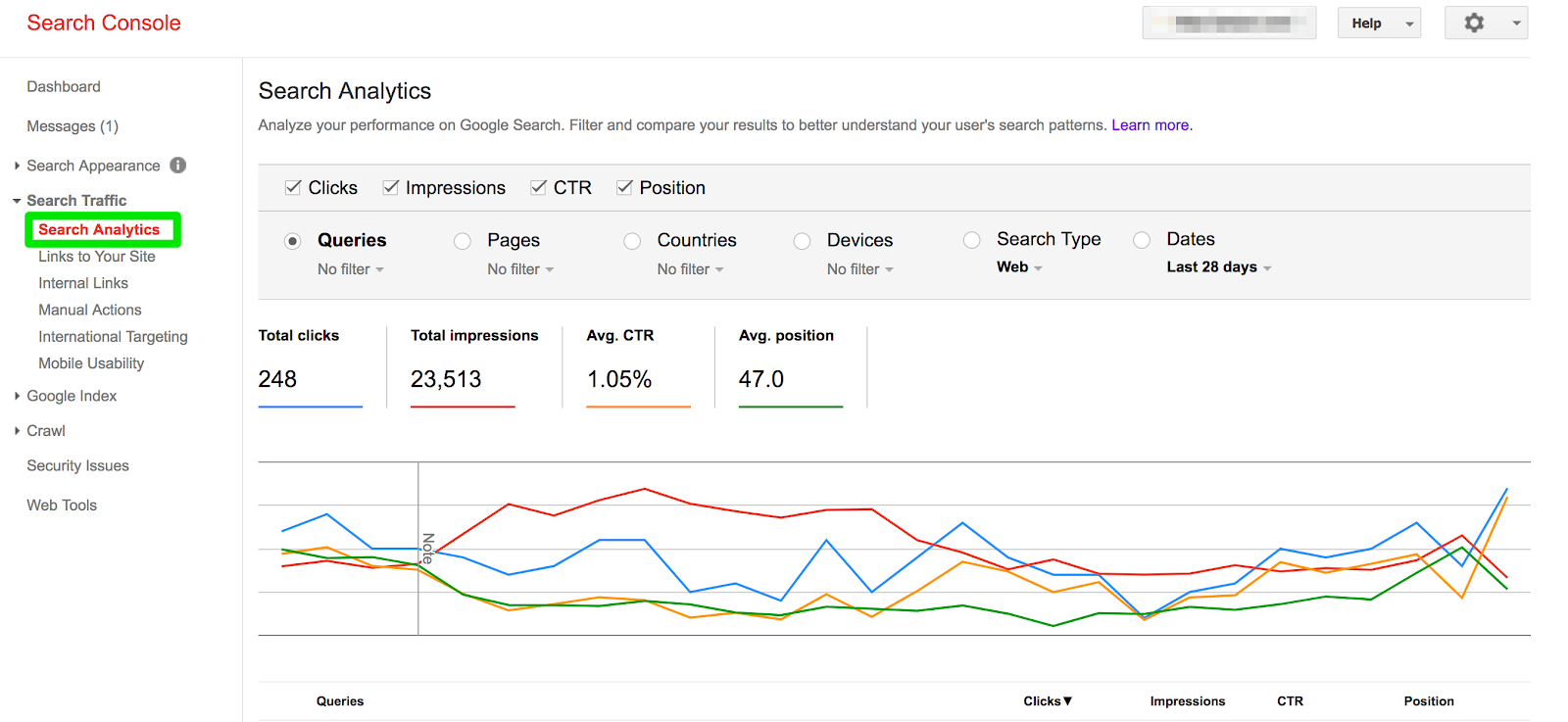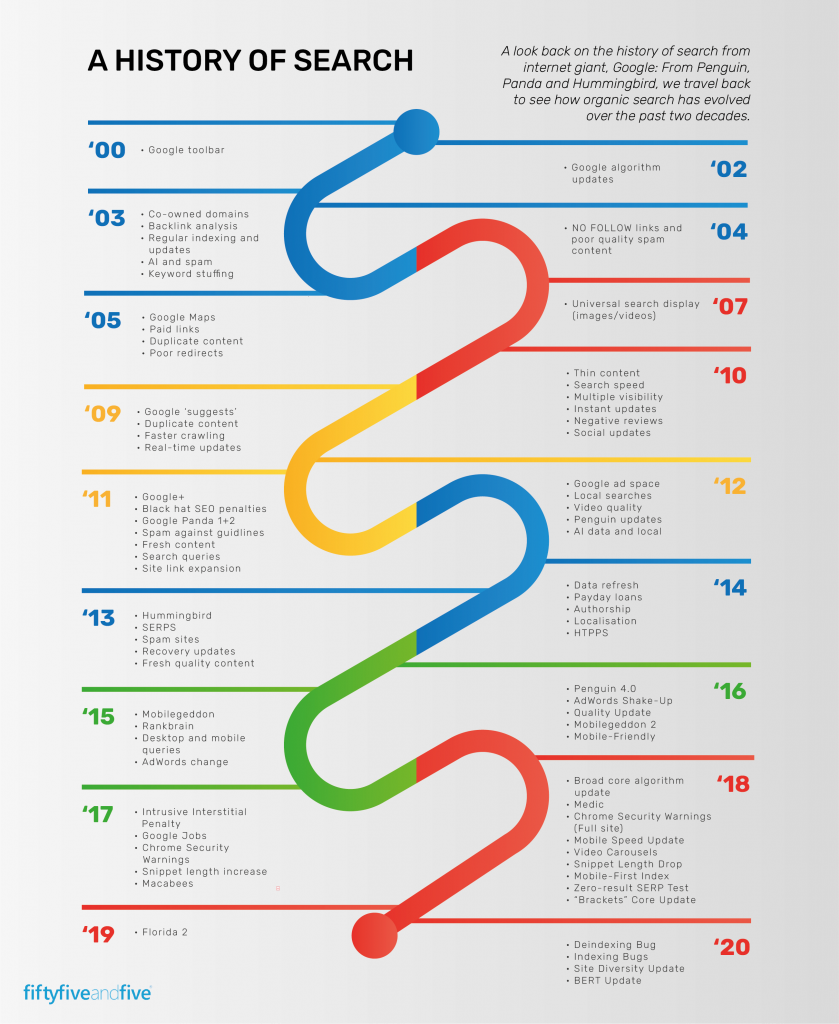For many websites, organic traffic represents over half of their visitor volume. What’s scary, however, is that any company could lose the value of months (or even years) of consistent and diligent SEO work in mere seconds. The main culprit? Not resolving SEO issues in a timely manner. As companies and web traffic grow, it’s easy to ignore small SEO issues and add them to the ‘to-do’ list. Those SEO ‘to-dos,’ however, add up and can cause skyrocketing bounce rates and free-falling traffic. As a marketing data analytics firm, we’ve assisted countless companies with their SEO issues, helping to prevent ranking, conversion, and sales losses.
Google Search Console
As a content marketing analytics company, we rely heavily on Google Search Console, as it reveals so much of what’s going on with your site’s traffic. Given that it is such an incredibly powerful tool, it can be overwhelming to know what to look for without help from a marketing data analytics firm. Here are a few things you can find in Google Search Console that are invaluable for troubleshooting your organic search traffic:
- Site errors and warnings
- Search queries that help your site appear in search results
- A list of internal and external pages that link to your website
- Crawl rate and when Google accesses your site
Although not comprehensive, these metrics are a fantastic first step to properly diagnosing any organic search issues you might be having. If your car breaks down, the first place you would look is under the hood. If your organic traffic begins to break down, the first place you should look is Google Search Console.

Algorithm Changes
Every year, Google changes its algorithm over 600 times. Needless to say, it can be difficult to keep track of every change. As a marketing data analytics firm, we understand how important it is to keep track of each and every iteration, as it makes it possible to determine what changes you need to make and when. There are plenty of resources – like Moz, Search Engine Journal, and more – you can use to learn how changes will impact what Google is penalizing, why Google is making changes, and how you can stay on Google’s good side. If you begin to see a decline in your search traffic, you should review these resources to ensure your website is compliant with Google’s policies.

Quality of Content
As a key focal point for Google’s algorithm, they have worked to prevent low-quality and thin content from appearing in search results. In short, search engines work to provide the results that best match the search intent of a user. If you want to rank highly, you have to convince search engines you’re answering the questions of users. With that, we live by a simple principle when it comes to organic search traffic: Content Is King. Ensure the content you are posting answers prospect’s questions, utilizes strong H1s and H2s, leverages strong supporting imagery (don’t forget alt. text!), and isn’t stuffed with unnecessary keywords.
Inbound Linking
Having inbound links is one of the most valuable ways to signal to Google that your website is high-quality and authoritative. In short, an inbound link is a link from another website to yours. Although highly valued in Google’s organic search algorithm, the tricky part about inbound links is that you have very little direct control over them. Should you see a decline in your organic and/or referral traffic, using link checkers like Smallseotools and majestic is a great way to determine if there has been an inbound link decline for your website. If this is the case, a couple of ways you can strengthen your inbound linking strategy is by writing guest posts on websites and creating valuable original content that other writers can use.

Sudden drops in any traffic channel are scary. Given that organic traffic is composed of high-intent users, it can be even more concerning, as it means fewer conversions and revenue. Should this ever happen to you, avoid panicking. At the end of the day, it’ll likely be something easily identifiable and can be remedied quickly in-house or with the help of a marketing data analytics firm.
Interested in working with a content marketing analytics company to help troubleshoot your organic search traffic? Contact Us!
